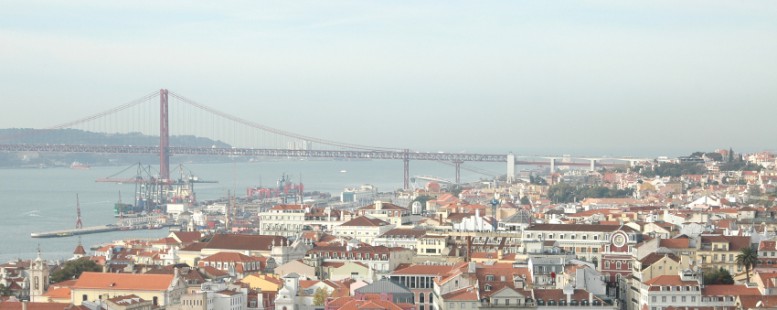Our Opinion: 2016
Portugal : Beyond austerity

It is always a pleasure to be in Portugal. Particularly yesterday, watching Lisbon’s residents celebrate National Freedom Day. Thousands of people marched down Avenue de Liberdale to mark the 42nd anniversary of the Carnation Revolution, a bloodless coup on 25th April 1974, which overthrew dictatorship.
The Portuguese President, Marcelo Rebelo de Sousa, said “I am aware these are not easy times. Thankfully, the country’s main objectives have a broad consensus.” He went on to say that Portugal should fight for a more supportive Europe and that post-colonial Portugal should look after its language, culture, and investment in education, science and innovation.
Social Democrat parliament member Paula Teixeira de Cruz seemed to catch the National mood by saying that the country has to draw attention to “demagogic governance, based on proposals for sustainability, which led the country to bankruptcy in 2011.”
Portugal’s pro-austerity government was ousted last year and the new government led by Prime Minister Antonio Costa came into power, promising to “turn the page of austerity” by raising wages and boosting growth.
Portugal’s deficit in 2015 was 4.4%, meaning it remains in the European Union’s disciplinary procedure for countries with deficits above 3%. Portugal also has one of the highest unemployment rates in the Eurozone, currently standing above 12%.
There is clear frustration that policies that have dramatically changed the lives of many were not discussed in Lisbon, but informally down the corridors of the European institutions. As the crisis appears to be wearing off, Portugal is steadily recovering its voice.
The government has now been in power for over 100 days. Austerity, once considered the ‘lesser evil,’ is now being severely questioned. And the Portuguese government is doing much of the questioning by decreeing a minimum wage increase from €505 to €530, and pledging to reverse the pension cuts, and the cutbacks in public services.
Austerity, as the national budget reflects, still permeates public affairs in Portugal, whilst Antonio Costa has tied its government’s fate to its end. He has made clear that decisions, this time, will be made in Portugal, not in Brussels.
Markets tend to look to the future, rather than the present. The Portugese stock market fell again today and is down 17.6% over the year. It is still 66% less than in peak in 2000.
There is plenty going for Portugal. Madeira, for example, is working hard to establish itself as a mature, well regulated financial centre. It is reaching out to its historic colonial links and, in particular, focuses on its connections with South America, that are arguably better than any other European power.
Austerity may be drawing to an end. That will, of course, boost the domestic economy and begin to slowly improve living standards. However, Portugal desperately needs international investment and it is hard to see that coming in the short term. There is little to recommend investment in the stock-market, for instance. Yet, this country’s rich history gives it an international outreach that would be the envy of many nations. And gives it the long-term potential to flourish.
Alexander Wade
26th April 2016
